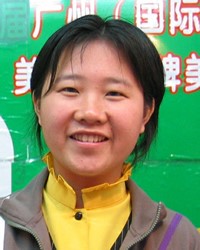Han Chinese, Cantonese in Singapore

Photo Source:
Karolien Taverniers - Flickr
Creative Commons
|
Send Joshua Project a map of this people group.
|
| People Name: | Han Chinese, Cantonese |
| Country: | Singapore |
| 10/40 Window: | No |
| Population: | 435,000 |
| World Population: | 80,120,700 |
| Primary Language: | Chinese, Yue |
| Primary Religion: | Buddhism |
| Christian Adherents: | 12.00 % |
| Evangelicals: | 7.00 % |
| Scripture: | Complete Bible |
| Ministry Resources: | Yes |
| Jesus Film: | Yes |
| Audio Recordings: | Yes |
| People Cluster: | Chinese |
| Affinity Bloc: | East Asian Peoples |
| Progress Level: |
|
Introduction / History
Although the Cantonese proudly consider themselves part of the Han Chinese, one ethnohistorian has concluded, "The ethnic origins of the ancient Yue people ... may have been Tai, but with a sizable Miao-Yao minority in the hills. The ancient Yue language was not Sinitic. It is estimated that the population of Guangdong was less than 30 percent Sinitic in 1080."
The more than 30 Han Chinese language groups are considered by linguists to be mutually unintelligible. They are not merely dialects of the same language. Cantonese contains up to nine tones. Although they speak different languages and dialects, all Chinese people use the same written script. In Singapore, English is just as important, but some prefer Cantonese as their heart language.
The large southern Chinese city of Guangzhou, which has been continually inhabited for 2,200 years, has always been the center of Cantonese civilization. In the 33rd year of the reign of Emperor Qin Shihuang (214 BC), the Nanhai Prefecture was established in today's Guangzhou. Large numbers of Han flooded into the area. Guangzhou became home to large numbers of foreign merchants in the ninth century until the T'ang emperors lost control of it in AD 878.
Cantonese speakers have migrated to many parts of the world, sometimes as merchants, but often as common laborers. Many migrated to Singapore when it was a British colony and they have been there ever since.
What Are Their Lives Like?
Both Mandarin and Cantonese have their own Chinese cuisine. This has been modified in Singapore where they have different available ingredients.
The Chinese in Singapore have their own newspapers and a strong literary scene. Mandarin speakers have concocted Xinyao, a musical genre unique to Singapore. Chinese festivals are popular, and Singapore has a distinctly Chinese flavor, though it is blended with their English colonial past.
Because Singapore was once a British colony, both the Mandarin and Cantonese Chinese people differed from their counterparts in the PRC. They are more Western in their outlook and much more likely to speak English as a trade language. Their accents also differ. They view themselves as Singaporean rather than Chinese, and there is friction with newer Mandarin and Cantonese arrivals.
What Are Their Beliefs?
Most Cantonese Chinese in Singapore have maintained their traditional Chinese religion blended with Buddhism. Most identify as Buddhists, though their form of Buddhism is well-blended with their traditions. These beliefs are centered around the concept of maintaining harmony, something greatly valued by all Chinese people. Although the Cantonese Chinese claim adherence to these beliefs, they seem to have little effect on their everyday lives. Many are non-religious in their daily practices.
There are strong Christians among Cantonese speakers in Singapore. They can be used by God to disciple many.
What Are Their Needs?
Even Christians get caught up in materialism and day-to-day activities. The Cantonese, especially those in the business community, are tempted to forget to allow Jesus to be in the center of their lives.
Prayer Points
Pray for the Lord to use vibrant Cantonese Chinese Christians to disciple those who need Christ's touch in Singapore.
Pray for Chinese Christian believers to fill the bowls of incense with prayer for the lost in Singapore.
Pray for the Cantonese Chinese to have the spiritual hunger to seek and find Jesus Christ.